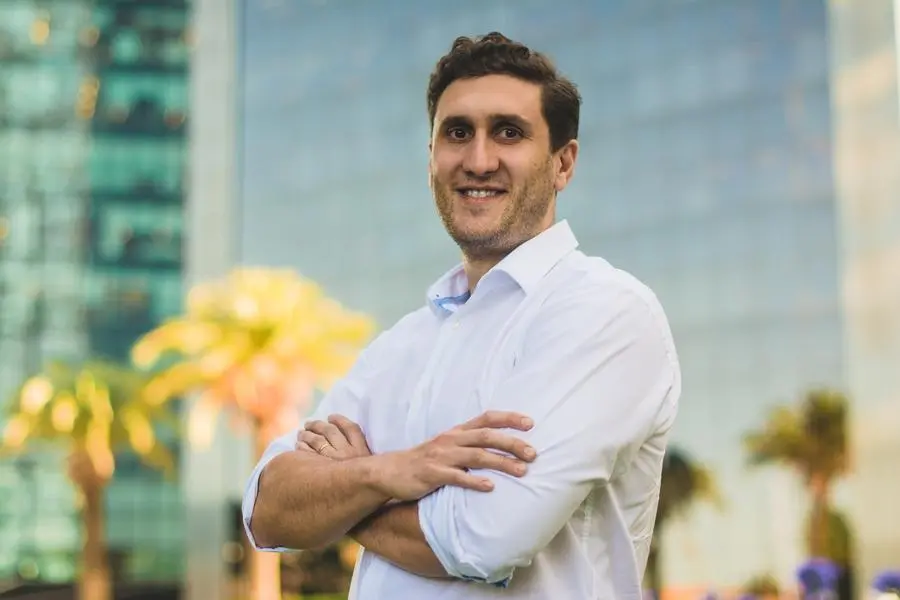PHOTO
- The GCC healthcare market is projected to reach $135.5 billion by 2027[1], with AI poised to inject $320 billion into the Middle East economy by 2030.[2]
- The average cost of a healthcare data breach rose to $10.93 million in 2023, necessitating robust AI-driven security measures.
Riyadh — Globant (NYSE: GLOB), a digitally native company focused on reinventing businesses through innovative technology solutions, has launched its new 'Move Your But' report to drive AI adoption in the healthcare industry, showcasing AI's potential to transform patient care and operational efficiency. The report's findings have significant implications for the GCC region, where the healthcare market is projected to reach $135.5 billion by 2027, with AI poised to inject $320 billion into the Middle East economy by 2030.
Addressing AI Adoption Challenges
This new report delves into AI's impact on the healthcare industry and marks the inaugural release of an industry-focused report titled "Move Your But." With this initiative, Globant aims to tackle the common excuses—or "buts"—that organizations use to justify not implementing AI. The findings are particularly relevant to the GCC, where the healthcare sector is rapidly evolving.
The study addresses beliefs that may hinder AI adoption and provides solutions to these challenges. For instance, despite the belief that 'Healthcare is Personal,' AI can enhance personalization by automating routine tasks, enabling healthcare providers to focus more on patient care. This is particularly relevant in the GCC, where the prevalence of chronic diseases like diabetes presents a significant opportunity for AI to make an impact. Globant's collaboration with a glucose monitoring organization demonstrates AI's potential, resulting in a 78% increase in click-through rates, thereby improving diabetes management adherence.
"Artificial Intelligence possesses a remarkable ability to transform established paradigms, and the GCC healthcare sector is primed to benefit. With the region's advanced digital infrastructure, AI is overcoming hurdles like complex data management and resource constraints. The potential of AI in GCC healthcare is crystal clear and is beginning to have a tangible impact. It's revolutionizing everything from telemedicine and personalized treatment plans to operational efficiency and patient safety—raising the bar for quality and accessibility across the Gulf. And with the region's commitment to innovation, there's undoubtedly more to come," said Federico Pienovi, Chief Business Officer & CEO for APAC & MENA at Globant.
Navigating Data Management and Regulatory Compliance
Addressing 'Data Management Challenges,' the report recognizes the complexity of navigating healthcare data. Globally, 62% of healthcare organizations see data silos as a significant obstacle to AI implementation. However, the report acknowledges AI's potential to break down these silos by integrating disparate sources into an efficient system. In the GCC, where digital health initiatives are rapidly advancing, AI-driven analytics can result in 50% faster data processing speeds, markedly improving data management and patient care.
This improvement is crucial, as Gen-AI technology can analyze unstructured data sets—such as clinical notes, diagnostic images, and medical charts—representing a potential breakthrough for healthcare operations. "We're taking a long-term perspective on AI in healthcare," commented Federico Pienovi, Chief Business Officer & CEO for APAC & MENA at Globant. "From AI-driven personalized treatment plans to virtual health assistants, we're witnessing a paradigm shift in healthcare delivery across the Gulf. With the Middle East and Africa telehealth market projected to reach $22.0 billion by 2030[3], our region's potential for AI-driven solutions is immense."
The report also addresses 'Regulatory Compliance,' highlighting AI's role in simplifying compliance while safeguarding data security and patient privacy. This is particularly crucial in the GCC, where countries like the UAE and Saudi Arabia rapidly advance their AI readiness and regulatory frameworks.
Globant remains dedicated to maximizing AI's potential to transform patient care and operational efficiency in GCC healthcare under the supervision of responsible employees and with the support of government and private sector initiatives. Our primary goal is to solve real user problems, ensuring AI benefits society while balancing innovation with necessary regulations. With an AI-centric approach, healthcare organizations in the GCC can anticipate a future where technology not only complements but also enhances their work, leading to improved patient experiences, streamlined operations, and, ultimately, healthier populations across the region.
You can access the full report here.
About Globant
At Globant, we create the digitally-native products that people love. We bridge the gap between businesses and consumers through technology and creativity, leveraging our experience as an AI powerhouse. We dare to transform organizations and strive to delight their customers digitally.
- We have more than 29,100 employees and are present in 33 countries across 5 continents, working for companies like Google, Electronic Arts, and Santander, among others.
- We were named a Worldwide Leader in AI Services (2023) and a Worldwide Leader in CX Improvement Services (2020) by IDC MarketScape report.
- We are the fastest-growing IT brand and the 5th strongest IT brand globally (2024), according to Brand Finance.
- We were featured as a business case study at Harvard, MIT, and Stanford.
- We are active members of The Green Software Foundation (GSF) and the Cybersecurity Tech Accord.
[1] https://www.zawya.com/en/business/healthcare/healthcare-expenditure-in-gcc-to-reach-1355bln-in-2027-wr3f1cj5
[2] https://en.incarabia.com/ai-boost-for-healthcare-sector-in-the-middle-east-662666.html
[3] https://www.grandviewresearch.com/press-release/middle-east-africa-telehealth-market-analysis




















